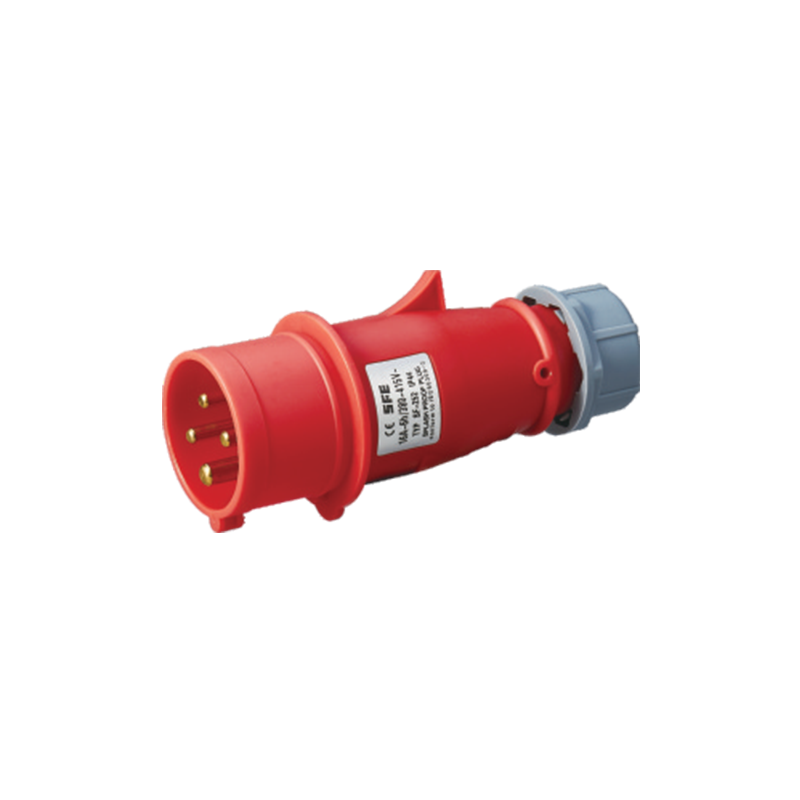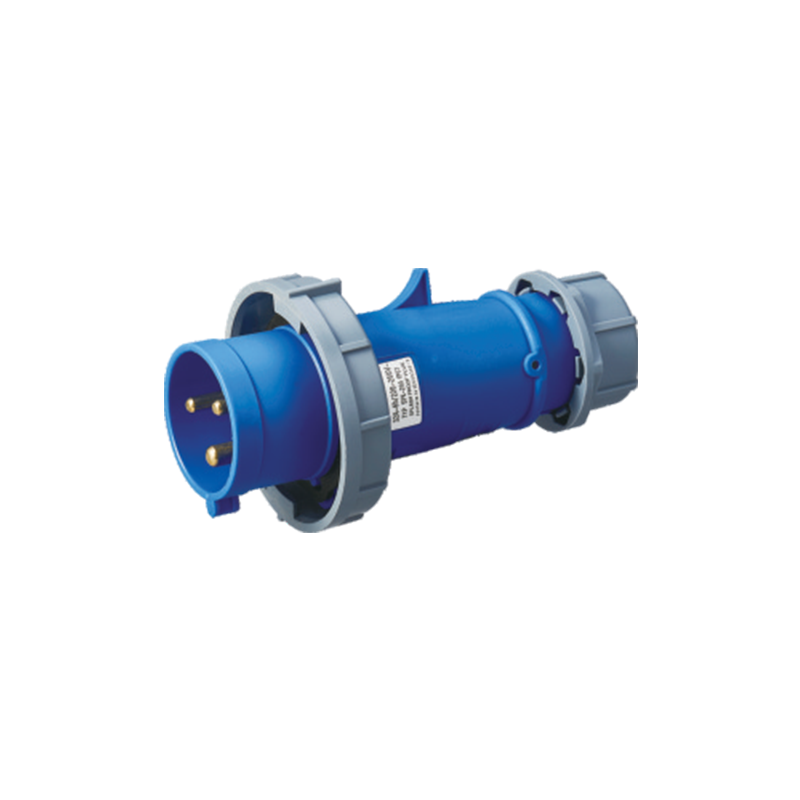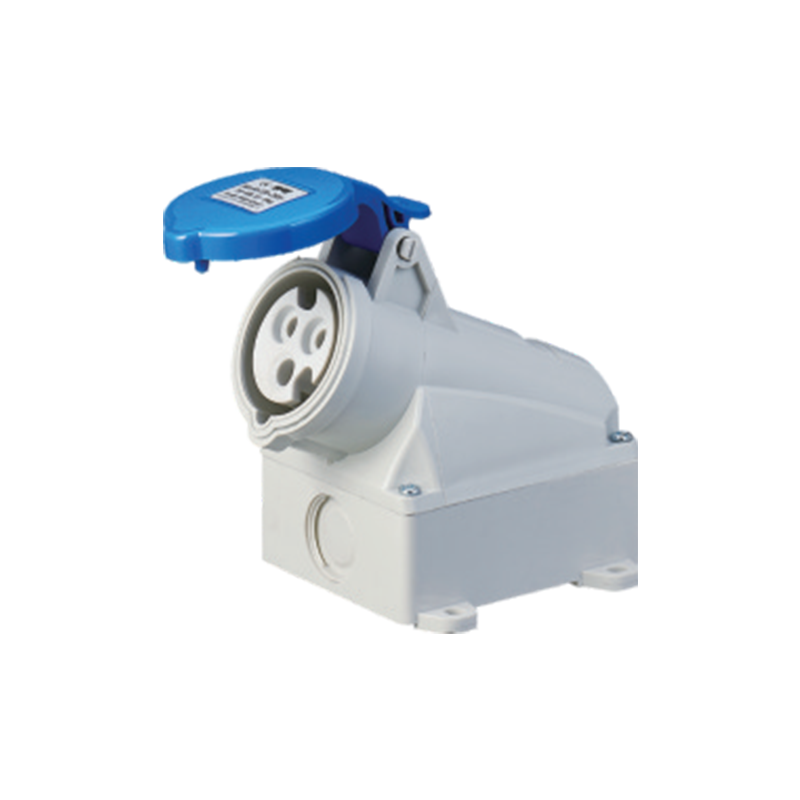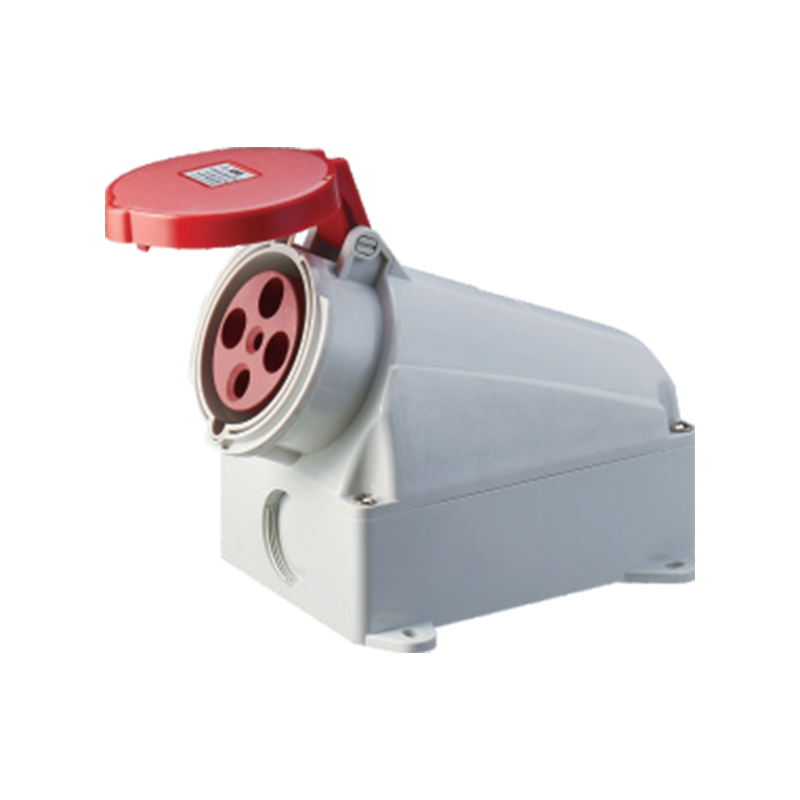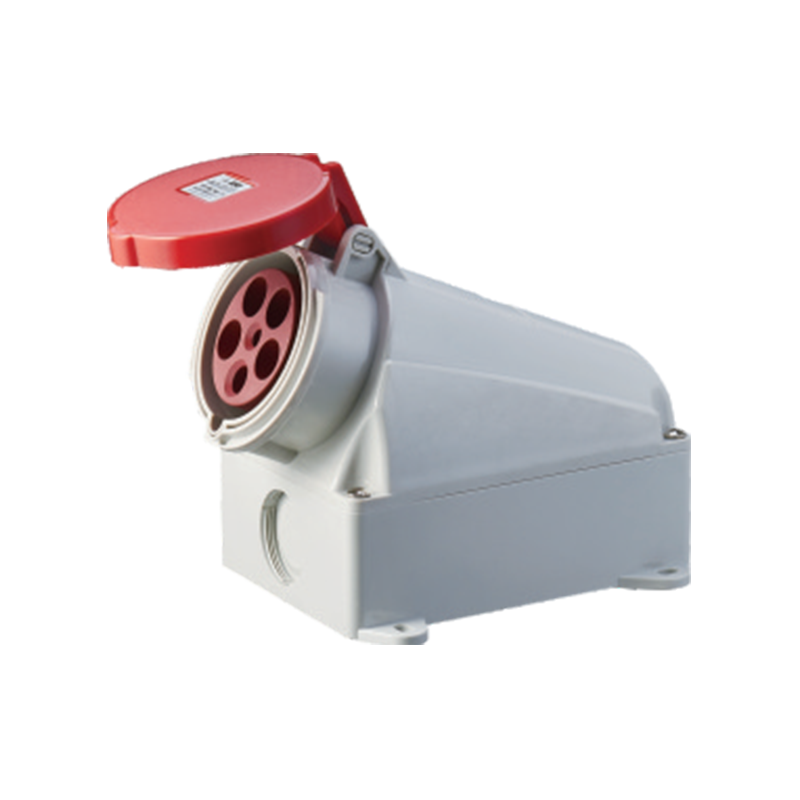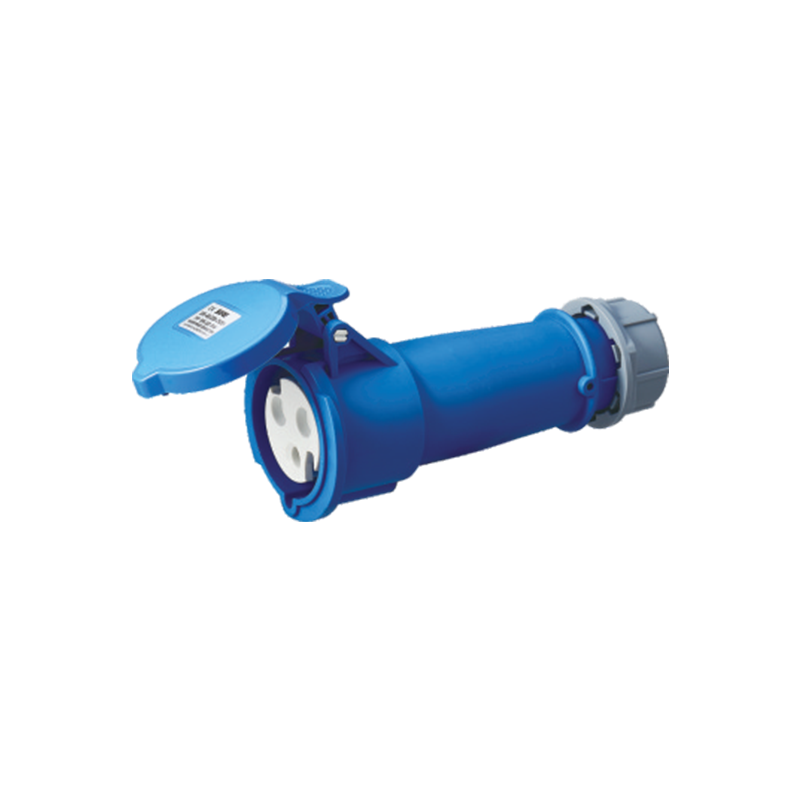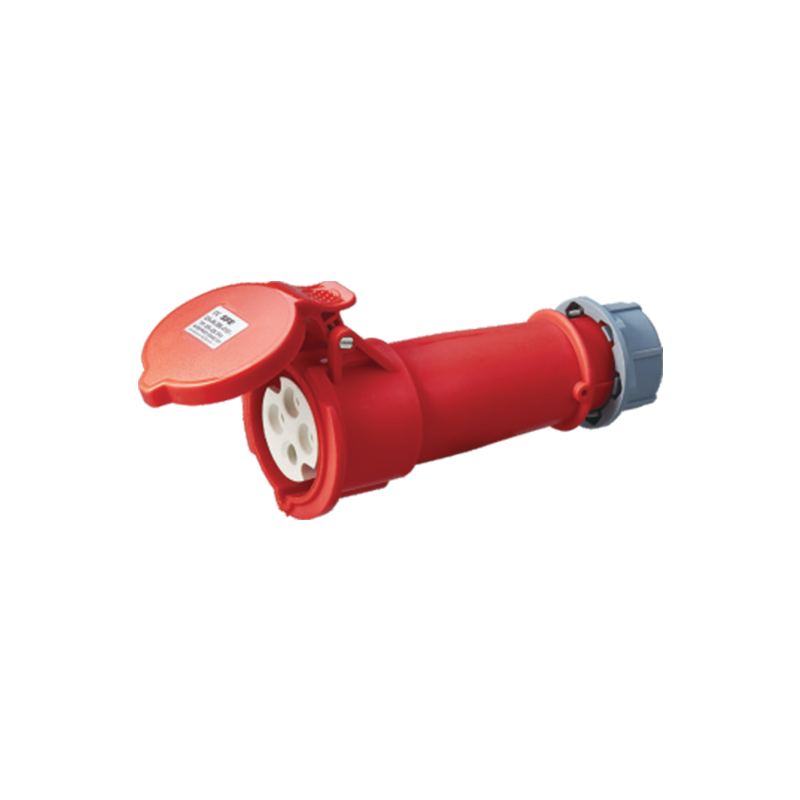Address: No. 199, Weiwu Road, Yueqing Economic Development Zone, Zhejiang Province, China.
Industrial plugs are electrical connection devices used in industrial environments. They are usually designed to be more rugged and durable to adapt to harsh working environments such as high temperature, humidity, dust, etc. Industrial plugs and sockets usually have the following features:
1. High protection level: Industrial plugs and sockets usually have a high protection level, such as IP65 or higher, to prevent the intrusion of water and dust.
2. Durability: They are usually made of durable materials such as metal or highly weather-resistant plastic to resist mechanical shock and wear.
3. Safety: Industrial plugs and sockets are designed with safety features such as locking mechanisms to prevent accidental disconnection.
4. Standardization: Industrial plugs and sockets follow specific international or national standards to ensure compatibility and interchangeability.
5. Multiple types: Industrial plugs come in a variety of types, including but not limited to single-phase and three-phase plugs, as well as plugs with different voltage and current levels.
6. Easy to maintain: Designed to be easy to install, remove and maintain.
7. Special applications: Some industrial plugs are designed for special applications, such as explosion-proof environments or high-vibration environments.
When choosing an industrial plug, you need to consider its compatibility with the connected equipment, the required degree of protection, and the specific requirements of the working environment.
When selecting industrial plugs and sockets, it's essential to understand the specific needs of your application. Electrical connection devices play a crucial role in ensuring the efficiency and safety of electrical systems in various industrial settings. Choosing the right type of industrial plug and socket panel can significantly impact operational reliability and maintenance.
One key factor to consider is the environmental conditions where these devices will be used. For instance, in environments with bad temperatures, humidity, or exposure to dust, selecting plugs and sockets with an appropriate IP rating becomes vital. IP65 or higher ratings are commonly recommended for such conditions, ensuring protection against dust and water ingress.
Another important consideration is the material composition of the plugs and sockets. Devices made from robust materials like high-grade metal or weather-resistant plastic can provide added durability and resistance to mechanical stress. This is particularly beneficial in industries that involve heavy machinery or equipment that generates vibrations, as these conditions can advance to wear and tear on standard electrical connection devices.
Safety features are also paramount when selecting industrial plugs and sockets. Many devices come equipped with locking mechanisms that prevent accidental disconnections, thereby reducing the risk of downtime or safety hazards. Additionally, it's advisable to look for designs that facilitate easy identification of voltage and current ratings, helping to ensure compatibility with connected equipment.
Standardization is a critical aspect of industrial plugs and sockets. Adhering to national or international standards ensures that various devices can be interchanged easily, facilitating repairs and upgrades without extensive modifications. This standardization helps streamline operations and enhances overall efficiency.
Furthermore, the diversity of industrial plug types allows for customization based on specific needs. Whether dealing with single-phase or three-phase power, the correct selection can optimize performance. Understanding the power requirements of your equipment will guide you in choosing the right voltage and current ratings for your plugs and sockets.
Maintenance is another consideration that should not be overlooked. Industrial plugs and sockets should be designed for ease of installation, removal, and maintenance, which helps less downtime during servicing. Features such as modular designs can simplify the replacement of components without the need for specialized tools.
Lastly, some industrial applications may require specialized plugs designed for unique environments, such as those that are explosion-proof or that endure high levels of vibration. Understanding these specific requirements is essential for ensuring the safety and efficiency of electrical systems.
In conclusion, selecting the right electrical connection devices, including industrial plug and socket panels, involves careful consideration of various factors, including environmental conditions, safety features, standardization, and maintenance needs. By addressing these elements, you can ensure that your industrial electrical connections are reliable and effective.
